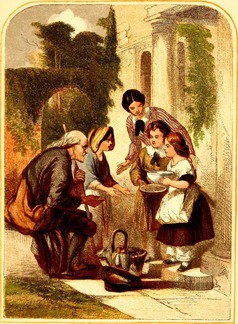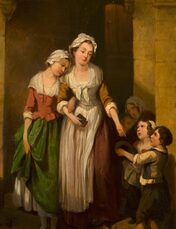| Many modern readers who love Jane Austen are eager to find ways to acquit her of being a woman of the long 18th century. Clutching My Pearls is my ongoing blog series about my take on Jane Austen’s beliefs and ideas, as based on her novels. Click here for the first in the series. |
 That "plantation" didn't have a sinister meaning in Austen's time?
That "plantation" didn't have a sinister meaning in Austen's time? there's an 1809 novel that contains 14 uses of the word “slave” and one use of the word “plantation” and features a wise and benevolent character named Mrs. Mansfield ?
Well, if you aren't hip-deep in Mansfield Park commentary, I suppose you would say, “so?” But if you are au fait with modern scholarly analysis, you would know that Jane Austen’s Mansfield Park (1814) is generally thought to be named after Lord Mansfield, whose 1781 ruling in the Somerset case effectually ended slavery in the United Kingdom. And you’d be aware that although there is only one reference to the slave trade, in which no opinion is expressed, many scholars think Mansfield Park has a pro-abolition theme.
So what if I told you that Celia in Search of a Husband, despite using the word “slave” 14 times, and despite having a character named Mansfield, is absolutely not about slavery at all? Even though debates raged over slavery at this time, it was common to speak of ladies making "slaves" out of their admirers, or being a "slave to fashion." (Austen has "Miss Crawford was not the slave of opportunity" in Mansfield Park.)
Celia in Search of a Husband has other fish to fry instead of British imperialism; it was written to take advantage of the popularity of Hannah More’s moralizing best-seller Coelebs in Search of a Wife which came out at the end of 1808. The success of More’s novel about a single man looking for a good wife led to many sequels (written by others, not More) and imitations. And yet, Celia in Search of a Husband is not really about a search for a husband, although a husband shows up near the end. It’s about the heroine, Celia Delacour, travelling to the wicked city, observing its vices and follies, and explaining her Christian principles to anyone who will listen and lots of people who won't...







 RSS Feed
RSS Feed